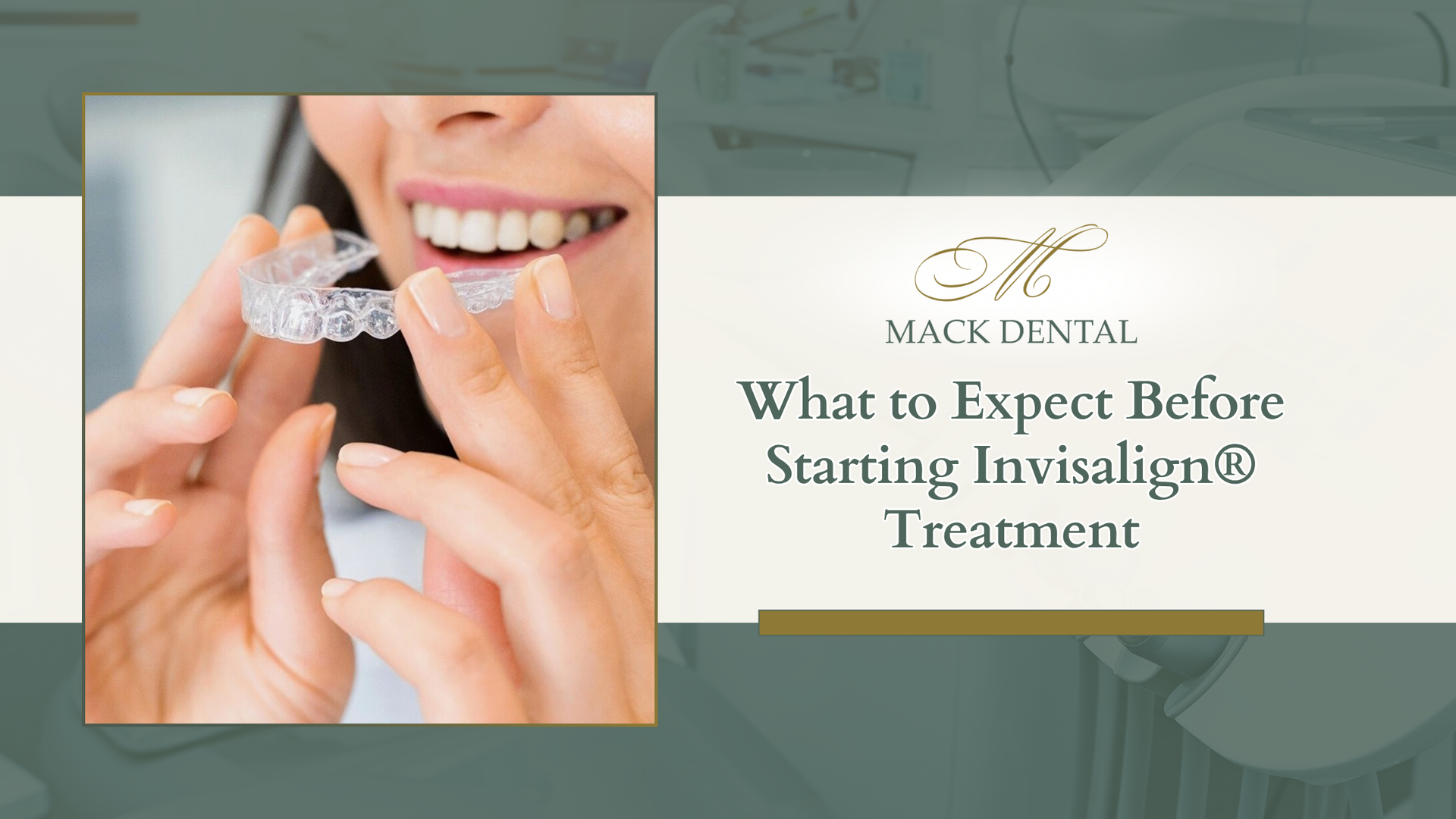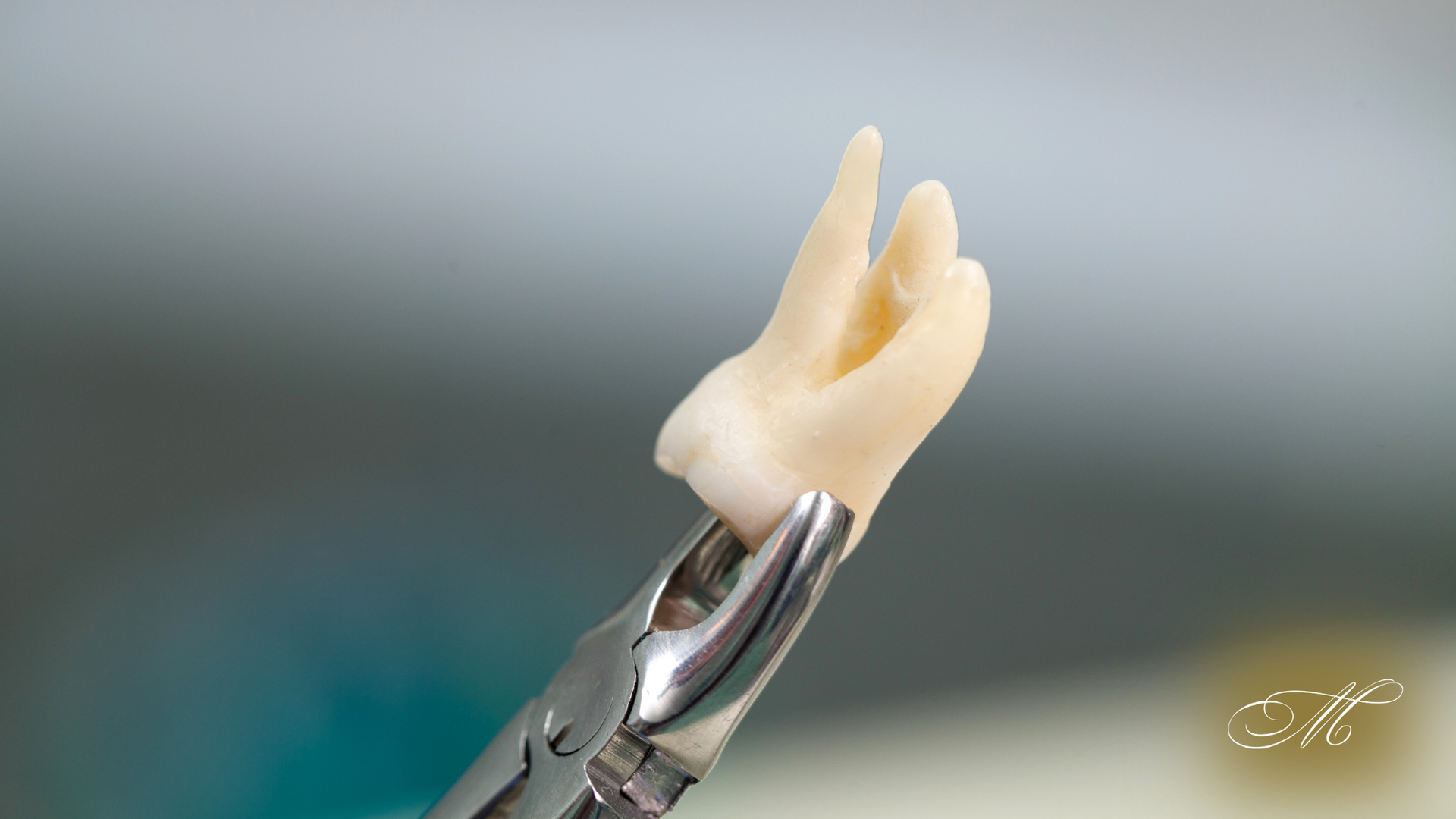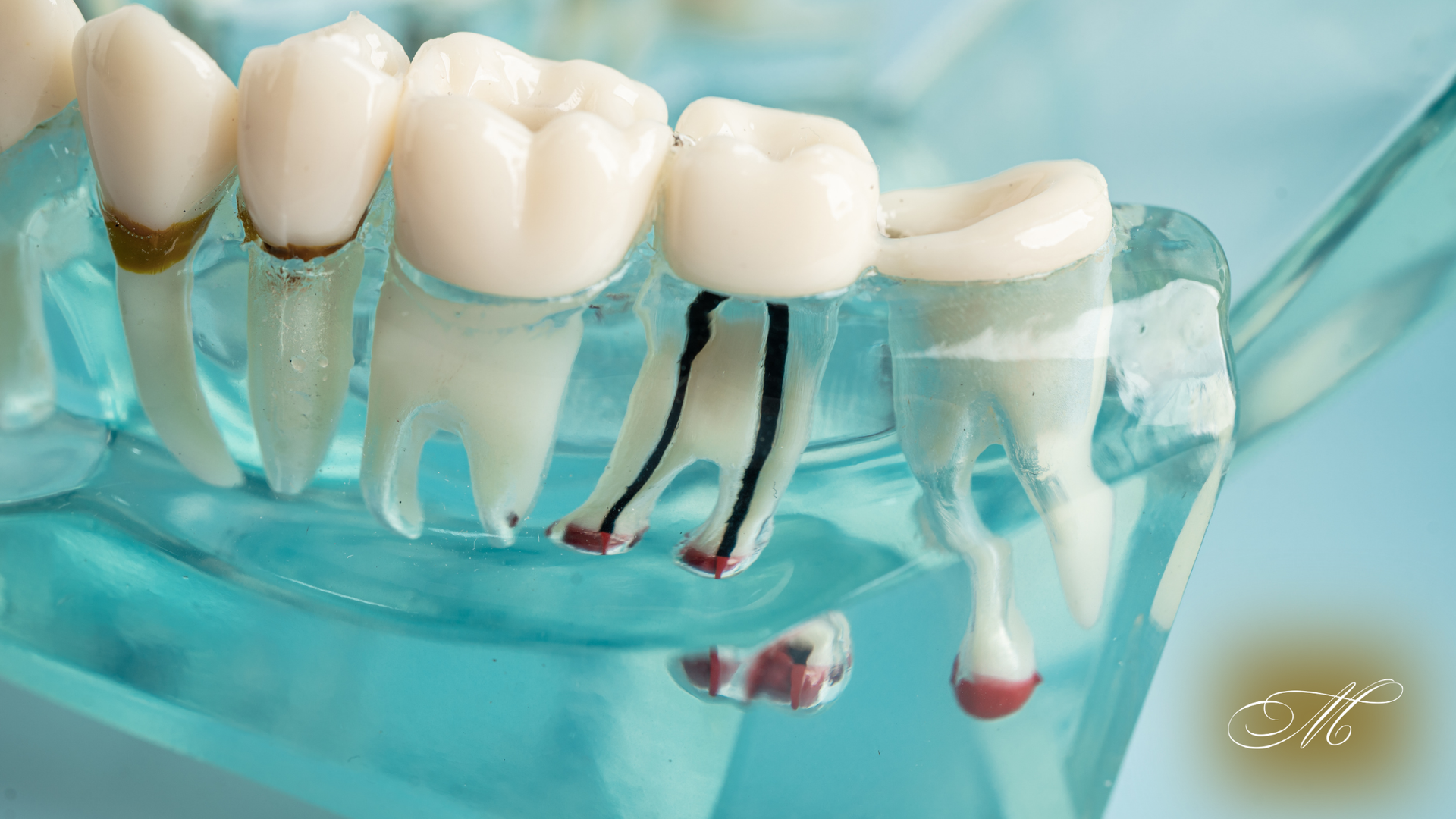What to Expect Before Starting Invisalign® Treatment

Source: Dr. Marketing
Starting Invisalign® is an exciting step toward achieving a healthier, straighter smile. However, before beginning treatment, it is important to ensure that your teeth and gums are in optimal condition. Invisalign® aligners rely on a precise fit to guide teeth into their correct positions, and any existing dental issues, such as cavities, gum disease, or missing teeth, can interfere with the effectiveness of treatment.
For many patients, minor dental work is necessary before Invisalign® to prevent complications, ensure comfort, and support long-term oral health. A comprehensive dental examination helps identify any concerns that need to be addressed beforehand, ensuring a smooth and successful orthodontic journey.
At Mack Dental in Watertown, we carefully evaluate each patient's oral health before Invisalign® treatment to determine whether any necessary dental procedures should be completed first. This blog explores the most common treatments needed before Invisalign®, why they are essential, and how they contribute to achieving the best possible results.
Why Is Pre-Treatment Dental Work Important?

Invisalign® works by applying gentle, controlled pressure to shift teeth into alignment over time. However, when underlying dental problems exist, they can create complications that interfere with how the aligners fit and function.
Addressing dental issues before starting Invisalign® helps to:
- Ensure a Proper Fit: Aligners are designed to fit snugly over teeth. If decay, fractures, or missing teeth alter tooth structure, aligners may not fit correctly.
- Prevent Delays in Treatment: Addressing dental work beforehand avoids mid-treatment complications that could prolong the Invisalign® process.
- Maintain Oral Health During Treatment: Since aligners cover the teeth for most of the day, untreated dental problems can worsen over time.
- Enhance Long-Term Results: A strong, healthy foundation leads to more predictable and stable alignment results.
What Dental Work May Be Needed Before Invisalign®?

Fillings for Cavities
Cavities are one of the most common dental issues that must be addressed before Invisalign® treatment. Even small cavities can weaken the tooth structure and compromise the fit of the aligners.
- Why It is Needed: If decay is left untreated, it can spread beneath the aligners, leading to further deterioration and discomfort. Since Invisalign® covers the teeth for up to 22 hours a day, it limits the natural flow of saliva, which helps wash away bacteria.
- How It Helps: Getting fillings before Invisalign® stabilizes and strengthens the tooth, ensuring the aligners fit properly and that decay does not progress. If a filling is placed after treatment has begun, new aligners may need to be made.
Tooth Extractions for Crowding or Wisdom Teeth
For patients with severe crowding, there may not be enough space for teeth to shift into their ideal positions. Tooth extractions, including premolars or wisdom teeth, may be recommended to allow for proper movement.
- Why It is Needed: Crowded teeth can block proper alignment and cause Invisalign® treatment to be less effective. Additionally, wisdom teeth that push against molars may contribute to shifting and misalignment.
- How It Helps: Removing unnecessary teeth creates room for the remaining teeth to move into their correct positions, leading to more efficient and effective results.
Periodontal Treatment for Gum Health
Gum disease, including gingivitis and periodontitis, must be treated before Invisalign®. Healthy gums provide the necessary support and stability for tooth movement.
- Why It is Needed: If gum disease is present, it can lead to inflammation, recession, or bone loss, making it difficult for teeth to shift properly. If left untreated, gum disease can also cause teeth to loosen, affecting the success of Invisalign®.
- How It Helps: Addressing gum health before Invisalign® strengthens the foundation of the teeth, preventing complications such as gum recession or instability. Scaling and root planing (deep cleaning) may be necessary before starting treatment.

Root Canal Treatment for Infected Teeth
A root canal may be needed if a tooth is infected or has deep decay reaching the inner pulp. This procedure removes bacteria while preserving the natural tooth.
- Why It is Needed: An untreated infection can worsen during Invisalign® treatment, leading to pain, swelling, or even tooth loss. Since aligners increase warmth and limit airflow in the mouth, bacterial growth may accelerate.
- How It Helps: A root canal eliminates infection and strengthens the tooth, ensuring it can withstand the pressure of aligners without pain or further damage.
Dental Crowns or Bonding for Weakened Teeth
If a tooth has been significantly weakened due to fractures, decay, or previous fillings, it may require a crown or bonding before Invisalign® treatment.
- Why It is Needed: Invisalign® applies continuous pressure on teeth. Weakened teeth are at risk of further damage during treatment.
- How It Helps: Crowns or bonding reinforce the strength of the tooth, ensuring it can withstand the movement and pressure of Invisalign® aligners.
Dental Implants or Bridges for Missing Teeth
For patients with missing teeth, a treatment plan must be carefully considered before Invisalign® begins.
- Why It is Needed: Missing teeth create gaps in the bite that can affect how Invisalign® moves the surrounding teeth. Additionally, teeth adjacent to gaps may shift improperly if space is not accounted for.
- How It Helps: Depending on the case, Invisalign® may be planned before or after dental implants are placed. In some cases, temporary solutions such as space maintainers are used during treatment.
How a Healthy Foundation Ensures Invisalign® Success

Proper Fit and Accuracy
Aligners are custom-made based on the shape of your teeth. Any changes to tooth structure due to decay, fractures, or missing teeth may require new scans and aligners, delaying treatment.
Reduces Mid-Treatment Disruptions
If untreated dental issues arise after Invisalign® has begun, treatment may need to be paused or adjusted, prolonging the process.
Minimizes Discomfort
Strong, healthy teeth and gums help reduce pain, inflammation, and irritation throughout Invisalign® treatment.
Long-Lasting and Predictable Results
A healthy oral foundation ensures that alignment progresses smoothly, leading to stable, long-term results after treatment.
When Should You Schedule a Pre-Treatment Dental Checkup?

It is very important to schedule a Pre-Treatment dental checkup, as this allows us to assess your oral health, identify any underlying issues, and determine whether any necessary dental work, such as fillings, extractions, or gum treatments, should be completed beforehand.
Ideally, a pre-treatment checkup should take place several weeks before beginning Invisalign®. This ensures that any required procedures are addressed without delaying your treatment timeline. During this visit, we will:
- Perform a full oral health assessment, including X-rays and a digital scan of your teeth.
- Check for cavities, gum disease, or other dental concerns that may interfere with Invisalign®.
- Discuss whether fillings, extractions, or restorations are needed before starting treatment.
- Develop a customized Invisalign® plan tailored to your specific dental needs.
- By scheduling this checkup early, you give yourself the best chance for a smooth and successful Invisalign® experience.
At Mack Dental in Watertown, we take the time to ensure that your smile is fully prepared for Invisalign® treatment and your Invisalign® journey is comfortable, effective, and free of unnecessary interruptions.
Build a Strong Foundation for a Successful Invisalign® Journey

Starting Invisalign® is an exciting step toward achieving a healthier, straighter smile, but ensuring that your teeth and gums are in optimal condition before treatment is essential. Addressing any necessary fillings, extractions, gum treatments, or restorations beforehand sets the stage for a smooth, effective, and comfortable orthodontic experience. By taking the time to prepare your smile, you not only prevent delays and complications but also enhance the long-term stability and success of your Invisalign® results.
At Mack Dental in Watertown, we are committed to helping you achieve the best possible outcome with Invisalign®. Our team will conduct a comprehensive dental evaluation, develop a personalized treatment plan, and ensure your teeth are fully prepared for a successful alignment process. Ready to begin your Invisalign® journey with confidence? Schedule your consultation today and let us help you create a strong foundation for the perfect smile!



